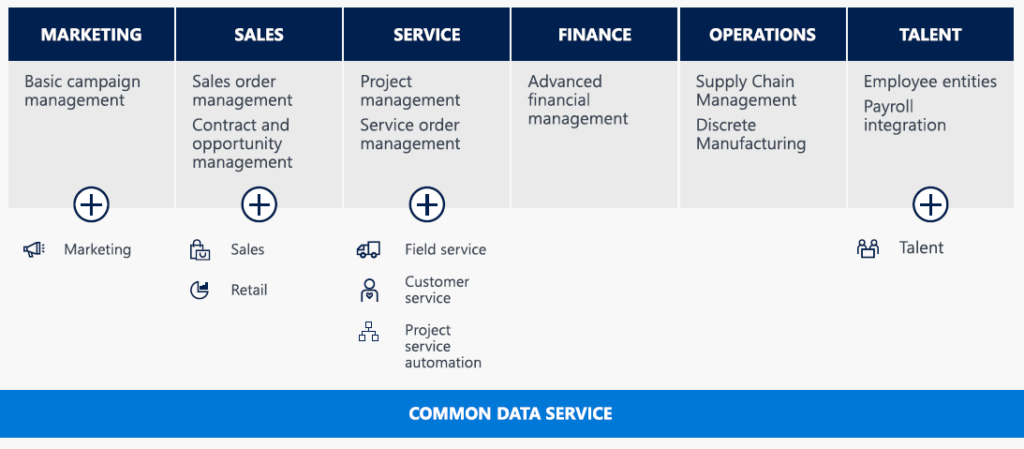Commercial applications have not been left out of the discussion on comprehensive digitization of our environment. While digital solutions are only now starting to take up a central and active role in numerous areas of our everyday life, e.g., autonomous driving, many operations of all serious companies and industries have been inconceivable without IT for a long time. In fact, these companies were the driving force behind IT development long before the private sector.
Today’s digital transformation is not just about technology. Rather, it entails a comprehensive strategy that puts organizations and business models to the test of implementing new ways of interacting with people, data, and processes. A significant part of the added value will be in the digital sector in the future. This has consequences, not least for business software. The roots of many ERP systems still date back to the 1980s and the systems have continuously been adapted over time to suit the respective requirements. Another update will not be enough to adapt the software to meet today’s requirements for the comprehensive digitization.
Why do we also have to rethink our business software?
Today customer relationships work more differently than a few years ago. The market transparency is many times higher and the opportunity to operate internationally has become much easier – competition is diverse. That makes it even more important to establish a stable and reliable cooperation with our customers, that guarantees the same level of quality across different situations. Studies foresee that the “customer experience” in dealing with a company is becoming increasingly important and will soon be just as relevant as “price” or “brand”.
Skills shortages are not an industry-specific problem. Our corporate resources are limited and the productivity of each employee is critical. Fast training, project-oriented way of working instead of controlled routines and teamwork across different locations are the keywords that now set the bar for the IT infrastructure of a company. Attractive workplaces must be modern and meet the desire for flexibility and mobility, which knows a new generation of private software usage habits.
Technology enables speed and flexibility. In today’s environment, the features a software should keep are changing fast. New business models emerge and increase competition constantly. Many companies are forced to act, to stem the loss of market share at least. Companies that offer their own new and better IT-based services can gain new customers quickly and offer well-targeted and individual products and services. With Dynamics 365, Microsoft has rethought the conventional ERP and CRM concepts and launched a solution that is well suited for a modern business applications architecture.
Dynamics 365 consists of various business applications, both for corporations (“Enterprise”) as well as for small and medium-sized companies. The products consistently meet the requirements of modern software, are easy to use, and well adapted to different mobile devices. Technically, they can be used as stand-alone products or integrated into modules for more possibilities.

Dynamics 365 – secure and on demand fulfilment of individual requirements
The individual program components are not setup as “Silos”. The corporate processes can be covered within a suitable product as needed and, if necessary, supplemented with specialized applications. The integration of data and processes on a standard infrastructure is ensured.
“Microsoft Dynamics NAV” is an ERP component that serves as a “Business Management Suite”, meaning that the product still contains all known functions expected of the core of an ERP application: finance and accounting, purchasing and sales, SCM (materials management), logistics, production, service, projects, and human resources.
Should a customer have further requirements in the future, e.g., in CRM/marketing or support of decentralized service employees, he/she can still access additional applications from the Dynamics 365 range of products, which either carry on with the processes on the same platform or, if necessary, can be reintegrated back to NAV.
This is also advantageous as it enables standardization of the individual application. Custom workflows, data analytics, communication and collaboration and also document management can all be accomplished with the Office 365 platform products or third-party products running on the same platform.
In combination with the Microsoft 365 applications, Dynamics 365 offers such a platform. We, the prisma group, would be happy to advise you against the background of your own challenges in the area of digitization.


Thanks for sharing such a great post. Keep sharing.